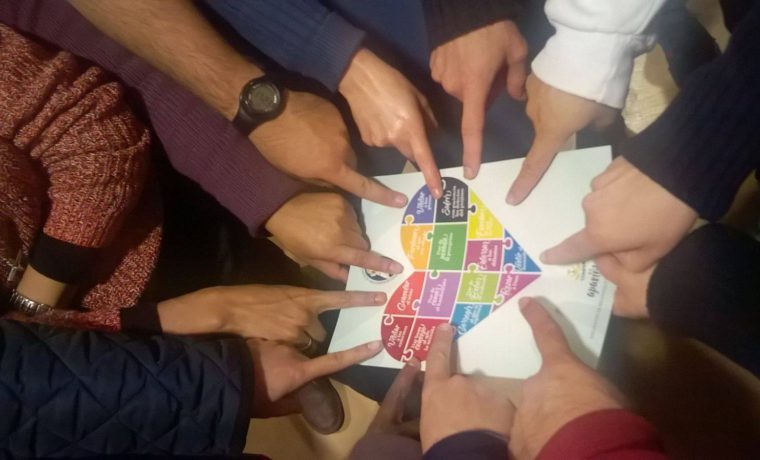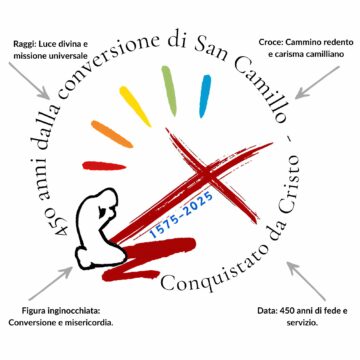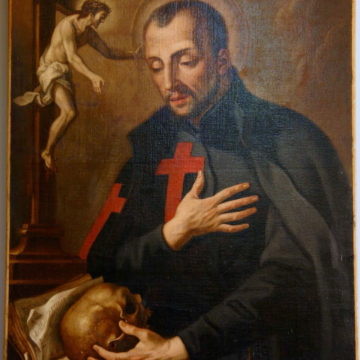 I was once asked why a person chooses to be a volunteer and emphasis was provocatively placed on the inclination of people to become a volunteer for their own benefit more than for other people. I believe that each person is a volunteer for their own personal and intimate reasons. Whoever they may be, it is certain that they give that which is most valuable in these very chaotic times in which we live, that is to say a little of their time. Another thing is certain, that whatever they give, they always receive much more in terms of relationships that necessarily intertwine and support each other, giving and receiving affection.
I was once asked why a person chooses to be a volunteer and emphasis was provocatively placed on the inclination of people to become a volunteer for their own benefit more than for other people. I believe that each person is a volunteer for their own personal and intimate reasons. Whoever they may be, it is certain that they give that which is most valuable in these very chaotic times in which we live, that is to say a little of their time. Another thing is certain, that whatever they give, they always receive much more in terms of relationships that necessarily intertwine and support each other, giving and receiving affection.
In such a delicate and problematic sector as palliative care, where the person on whom a volunteer concentrates their attention is a person who is living the final part of their life (indeed probably the most intense and difficult period) when they need to be taken responsibility for in all their complexity, it is specifically during this part of the journey that a volunteer performs an important role.
The team cooperates in taking care of a person and their family in an overall approach and establishes as an objective an improvement in the quality of life of the patient. It accompanies them towards an acceptance of the completion of their life that is as peaceful as possible. Each worker can use the observations that a volunteer makes at the end of their round of service in order to improve their work.
A volunteer is a worker who can dedicate more time than anyone else to being at the side of the patient, welcoming their requests for help, for support and for simple company or nearness; a volunteer can perceive anxiety, the suffering that is not expressed, and can dedicate themselves to caring for those aspects that may seem less important, such as physical appearance, but which manage, instead, to bring out smiles on faces that are tested by illness. A volunteer is a discreet and silent travelling companion who holds your hand while you sleep to make you feel less alone; who prays for you, who tells you stories or who listens to yours, who gathers up your private communications and keeps them in their heart. And who does not forget your name even when you are no longer alive, because every person that the volunteer accompanies leaves inside them the seed of a flower that is put in their garden. As the years steadily go by, the faces and names increase and the seeds become flowers which are very beautiful and which the volunteer cares for and keeps in their heart.
How many times do you arrive in a hospice with very many personal troubles that disappear as if by magic the moment that you enter it, as though outside the door there was a large sack in which our burdens end up: a sack that keeps those burdens and makes them lighter when we leave the hospice.
How many times when I am at home do I weep all the tears that I have kept smothered behind the smiles that I displayed to lighten the pain of the person I accompanied. Tears that at times do not have a precise cause but which are only giving vent to a hardship of my soul which each time tries to be in front of the pain of other people trying to be a support, a caress, a kiss. To be there in this sense seems to be static and simple whereas our Being there is full of very many things, emotions, feelings, troubles, but it is also full of meaning, that meaning that each one of us looks for over an entire life and which is experienced by a volunteer in a hospice, each time with a different and very valuable point of view.
When they ask me why I chose to be a volunteer in palliative care, I answer that it is because life has placed on my journey very many obstacles, very many rough stones and broken glass from bottles which lacerated my naked feet to the point of making me stagger and be afraid that I would not manage to continue on my journey. But on this pathway I have also encountered very many hands that have supported me, very many smiles that have turned on the light, and in raising myself up from the ground each time I found my meaning. I call it passing on the favour; I have received help and my life finds meaning – and is completed – in giving help.
The role of a volunteer in palliative care is the role of a white page on which an infinity of things can be written; it is not the page that writes, but without the page very much can be lost.
Elisabetta Poggi, a volunteer in palliative care












Camillians on Facebook
Camillians on Twitter
Camillians on Instagram